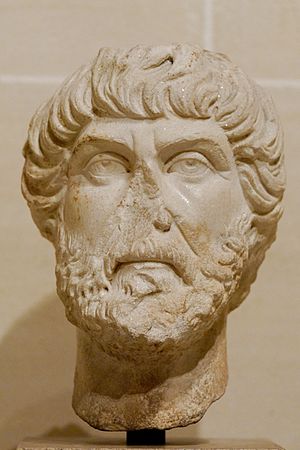To Be(rean) or Not To Be(rean): THAT is the Question (a PINK Tuesday post)
Pastor/author/speaker Rob Bell has a new book hitting the shelves today, and the religious community is astir. Words like radical, universalist, false prophet and heretic are erupting from the mouths and the laptops of many whose closely-held interpretations of Scripture are being challenged in Bell’s controversial book, Love Wins: A Book about Heaven, Hell and the Fate of Every Person Who Ever Lived. Surprisingly (or not), many of those whose criticisms are already raging have yet to actually read the book.
Several years ago I took my women’s study group through a book written by atheist Christopher Hitchens. Some of my group would tell you that they were cautiously skeptical when the study began – it felt almost like heresy to even open the book, God Isn’t Great: How Religion Poisons Everything, but we did.
We bought used copies – most of which had been removed from the shelves of libraries. We read it. We discussed it. We cross-referenced the author’s references. We looked things up and we broke things down.
It was one of the most eye-opening and faith-building exercises I have ever engaged in, and I think I can tell you why…
Questions are Inevitable
When we willingly choose to take on the challenge of examining Scripture in light of a different worldview or theological perspective, we can state with absolute certainty that “if you read it, they will come” (the questions, that is).
It is questions – not answers – that draw us deeper into the mystery of that which is worth knowing.
The more I have learned about the God I worship and the Savior I follow, the more questions I have; the less I seem to know.
Sometimes we are paralyzed by our state of not knowing, especially when we’re so full of questions that we wonder whether God is even find-able. Yet Psalm 34:10b says that “God-seekers are full of God.”
Some of us seek answers, while some of us seek God. There is a difference.
Those who push against the comfort level of the frozen chosen often find themselves on the sharp end of a critical tongue; full of something, all right, but whether that something is God or something more pungent depends upon who you ask. As we mature in our faith, struggling with what we believe as it rubs up against the faith of others, we begin to respect and even appreciate the questions. And the ones who are brave enough to raise them.
There is Safety in Numbers
Community is critical in the working out of our faith. Thinking people easily fall to the temptation of that fateful tree, choosing the illusion of knowledge over the gift of faith. Challenging one another to think and study and find words for the ideas taking shape inside our heads is invaluable to lives being lived for the glory of God!
Often these snapshots of community look more like a train wreck than a garden; the faint of heart need not apply themselves to such experiential efforts. It takes guts and a ravenous hunger for God to drive a man or a woman into community and keep them there.
Self-preservation is thrown out the window when one chooses to become part of a community of faith; a limb or an organ in the Body of Christ. Here we are equipped to tackle the tough stuff of life and faith in authentic and life-altering ways, and we do so alongside others whose imperfections and mis-directions may very well drive us insane. It’s in the tension of community, though, that we are given perhaps the clearest picture of the God we cannot see with our eyes.
In the end, those who have fought long and hard to be an island and have lost are those who are more able to articulate what it is that they have found.
Acts 17:9-12 tells the story of itinerant preachers/missionaries, Paul and Silas, and the people of Berea.
“The people there were more open-minded than the people in Thessalonica. They listened to the message with great eagerness, and every day they studied the Scriptures to see if what Paul said was really true. Many of them believed.” (Good News Translation)
One translation says that, as a result of their searching the Scriptures, many believed. The Bereans were known for their need to test the words of men against the Word of God. They were commended for it! You and I probably believe that what Paul spoke to these faithful students of Scripture was provable by the Scriptures themselves, but we don’t hear about them using their findings to beat down those whose message seemed to be inconsistent with what they had found in the pages of God’s Word. They simply tested everything, and many of them believed.
How many of us can say that this is the way we have chosen to approach the study of the Bible, the things of God?
How many of us who are quick to condemn a teaching or a teacher can honestly say we’ve studied the Scriptures – exhaustively – for ourselves?
How many of us are basing our beliefs on someone else’s say-so rather than on the authority of the revealed Word of God?
There are plenty of believers who are choosing the road of condemnation and name-calling these days. Let’s not be one of them.
To Be(rean) or Not To Be(rean): THAT is the Question on this PINK Tuesday.


Leave a Reply
Want to join the discussion?Feel free to contribute!